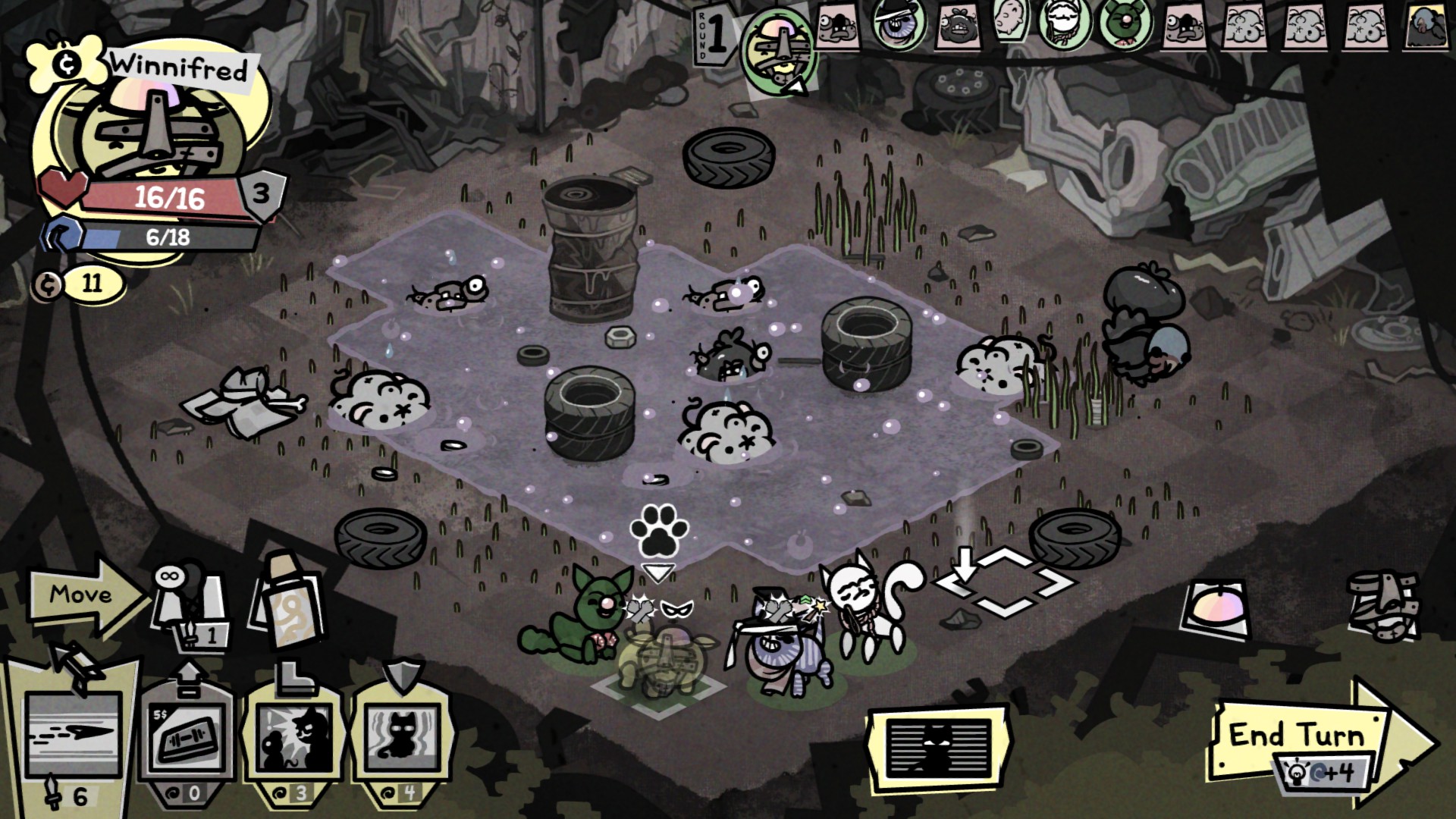Comics legend Alan Moore calls out 'reflexive belligerence' of pop culture fandom: 'Fan attitudes have toxified the world'
Moore, widely regarded as one of the great comic book writers of all time, shared some thoughts on the nature of fandom in a new essay.

Keep up to date with the most important stories and the best deals, as picked by the PC Gamer team.
You are now subscribed
Your newsletter sign-up was successful
Want to add more newsletters?

Every Friday
GamesRadar+
Your weekly update on everything you could ever want to know about the games you already love, games we know you're going to love in the near future, and tales from the communities that surround them.

Every Thursday
GTA 6 O'clock
Our special GTA 6 newsletter, with breaking news, insider info, and rumor analysis from the award-winning GTA 6 O'clock experts.

Every Friday
Knowledge
From the creators of Edge: A weekly videogame industry newsletter with analysis from expert writers, guidance from professionals, and insight into what's on the horizon.

Every Thursday
The Setup
Hardware nerds unite, sign up to our free tech newsletter for a weekly digest of the hottest new tech, the latest gadgets on the test bench, and much more.

Every Wednesday
Switch 2 Spotlight
Sign up to our new Switch 2 newsletter, where we bring you the latest talking points on Nintendo's new console each week, bring you up to date on the news, and recommend what games to play.

Every Saturday
The Watchlist
Subscribe for a weekly digest of the movie and TV news that matters, direct to your inbox. From first-look trailers, interviews, reviews and explainers, we've got you covered.

Once a month
SFX
Get sneak previews, exclusive competitions and details of special events each month!
Alan Moore, widely regarded as one of the best and most influential comic book writers in the world, has penned a treatise in The Guardian on the rise of "fandom" in popular media and beyond, warning that while it can be "a productive force for good," it has a tendency to toxify into "a grotesque blight that poisons the society surrounding it with its mean-spirited obsessions and ridiculous, unearned sense of entitlement."
Moore's essay begins by casting back to older comments he made about the rise of superhero movies, originally published in 2017 on Folha de São Paulo and translated and posted to his own site a couple years later. The most famous part of the interview is probably his comment about the "deliberate, self-imposed state of emotional arrest combined with a numbing condition of cultural stasis" among superhero movie fans, but the real fire actually comes a bit later.
"The superheroes themselves—largely written and drawn by creators who have never stood up for their own rights against the companies that employ them, much less the rights of a Jack Kirby or Jerry Siegel or Joe Schuster—would seem to be largely employed as cowardice compensators, perhaps a bit like the handgun on the nightstand," Moore continued. "I would also remark that save for a smattering of non-white characters (and non-white creators) these books and these iconic characters are still very much white supremacist dreams of the master race. In fact, I think that a good argument can be made for DW Griffith’s Birth of a Nation as the first American superhero movie, and the point of origin for all those capes and masks."
The damning critique didn't go over super-well with some people at the time, particularly fans of superhero movies, as you might imagine. But it forms a foundation for his new essay, in which Moore takes a closer look at the nature of fandom and the ways it's changed since his early days to be older, more affluent, and firmly in the grip of nostalgia. That increase in age and status may explain the commensurate jump in a sense of privilege, he continued, and along with that "its tendency to carp and cavil rather than contribute or create."
"I speak only of comics fandom here, but have gained the impression that this reflexive belligerence—most usually from middle-aged white male conservatives—is now a part of many fan communities," Moore wrote. "My 14-year-old grandson tells me older Pokémon aficionados can display the same febrile disgruntlement."
Of course, that sort of thing is also very visible in the world of videogames, which is rife with campaigns, largely on social media, against anyone who dares challenge stereotypical "gamer" supremacy, built on memories and ideas that took hold in early puberty. It can be seen in the "tidal wave of hate and abuse" inflicted on the developers of Dustborn, or the ire directed against games like Suicide Squad and Concord, which went far beyond any reasonable or acceptable level of criticism.
It's not universal: Some fandoms are "entirely benign," made up of people with shared interests who enjoy supporting their hobbies. But that "febrile disgruntlement," as Moore put it (a phrase I absolutely intend to steal), of toxic fans leaches into the real world, polluting the cultural waters that surround us, and the net result is that "our culture has become a fan-based landscape that the rest of us are merely living in."
Keep up to date with the most important stories and the best deals, as picked by the PC Gamer team.
"We may endure largely misogynist crusades such as Gamergate or Comicsgate from those who think 'gate' means 'conspiracy,' and that Nixon’s disgrace was predicated on a plot involving water, but this is hardly the full extent to which fan attitudes have toxified the world surrounding us, most obviously in our politics," Moore wrote, indicating a more than passing familiarity with game industry history.
"Elections that decide the fate of millions are conducted in an atmosphere more suited to evictions on I’m a Celebrity…, in which contestants who are insufficiently amusing are removed from office. Saleability, not substance, is the issue. Those who vote for Donald Trump or Boris Johnson seem less moved by policy or prior accomplishment than by how much they’ve enjoyed the performances on The Apprentice or Have I Got News for You."
Moore concluded that it's fine to be a big fan of something, but using it to "displace personal frustrations into venomous tirades about your boyhood hobby" is not: "You don’t need the machete or the megaphone." He's right about that, just as he's largely right about all the rest of it—but (because he is largely right about the rest of it) we'll be closing the comments anyway.

Andy has been gaming on PCs from the very beginning, starting as a youngster with text adventures and primitive action games on a cassette-based TRS80. From there he graduated to the glory days of Sierra Online adventures and Microprose sims, ran a local BBS, learned how to build PCs, and developed a longstanding love of RPGs, immersive sims, and shooters. He began writing videogame news in 2007 for The Escapist and somehow managed to avoid getting fired until 2014, when he joined the storied ranks of PC Gamer. He covers all aspects of the industry, from new game announcements and patch notes to legal disputes, Twitch beefs, esports, and Henry Cavill. Lots of Henry Cavill.

